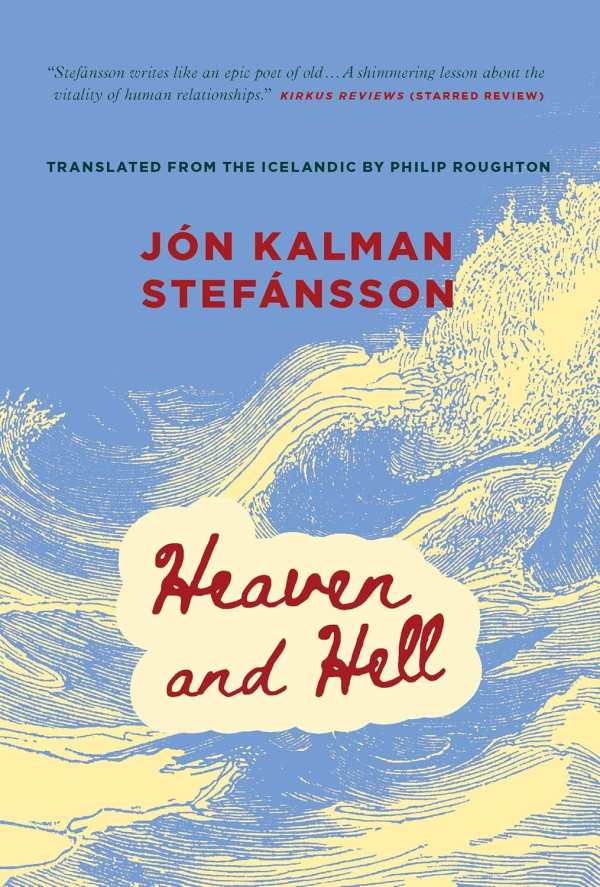Heaven and Hell
The Trilogy about the Boy
A kindred relationship is severed by a winter storm in Jón Kalman Stefánsson’s novel Heaven and Hell, about grave losses and lucent beginnings.
In a place “built of cod bones,” Bárður and an orphaned boy are outliers among their tough Icelandic fishing crew. They find as much sustenance in books as they do in warm meals after long days at sea. But when Bárður, focused on memorizing lines of Paradise Lost before a predawn trip, forgets his waterproof gear, a blizzard claims his life. The boy is bereft. He sets out into the storm the same night to return the borrowed Milton to its owner. He has loose plans of joining his friend after.
The boy’s dangerous trek overland through the snow lands him in different circumstances than expected, though. In a parlor converted to a café by a peculiar heiress, he is offered comfort. Having lost so many in his life, he now has the opportunity for a true community—if he’s willing to leave Bárður behind.
The novel is lyrical in detailing hardscrabble life along polar sea shores, where everyone has lost someone, yet the fishing boats keep launching. Legions of the lost are pictured beneath the waters, “waiting for God to … fish them up with his net of stars.” The boy, a shy soul, all but loses his voice with his friend gone, admitting “I just don’t know who I am. I don’t know why I am. And I’m not entirely sure that I’ll be given time to figure it out.” Bibliophiles are few in his land, but their company is his best refuge.
A poetic soul sets out on a quest to honor his lost friend in the aching, trilogy-opening novel Heaven and Hell.
Reviewed by
Michelle Anne Schingler
Disclosure: This article is not an endorsement, but a review. The publisher of this book provided free copies of the book to have their book reviewed by a professional reviewer. No fee was paid by the publisher for this review. Foreword Reviews only recommends books that we love. Foreword Magazine, Inc. is disclosing this in accordance with the Federal Trade Commission’s 16 CFR, Part 255.

